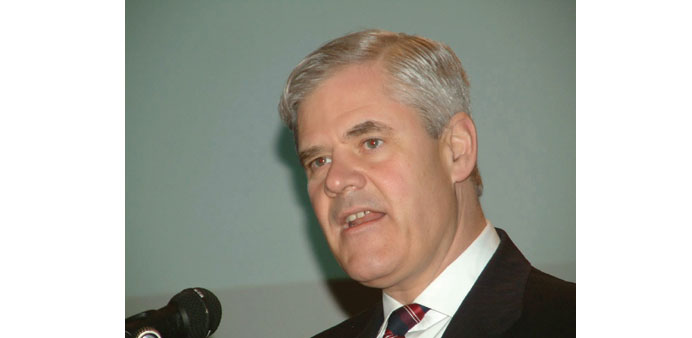Reuters
Analysts and researchers should not waste their time trying to predict the outcome of the European Central Bank’s bank review due in October because “serious” forecasts would be impossible to give at this stage, a top Bundesbank official said.
The ECB is putting the eurozone’s 131 largest banks through an unprecedented health check before it becomes their supervisor in November as part of a broader push for closer financial integration to make future crises less likely.
The various stages of the test build on each other, which makes it close to impossible to gauge the outcome, Bundesbank board member Andreas Dombret told reporters.
“At the current point in time it is impossible to make a serious statement on how the results will come out in the end,” said Dombret, who has been in charge of banking supervision on the Bundesbank top board since May.
“I therefore find it simply unreasonable when non-involved third parties give the impression they knew something,” he said.
Markets are becoming increasingly nervous about how the banks fared in the year-long test, seen as crucial to reviving confidence in the sector.
Various bank analysts and researchers have published reports over recent months including estimates for how many of the 131 participating banks would fail the tests and how much capital the lenders may have to raise to meet the relevant benchmarks.
Earlier this year, analysts at Keefe, Bruyette & Woods estimated a total capital deficit of €17bn ($22.89bn), with 27 banks failing when excluding the impact of stress on sovereign debt and certain conversions and writedowns.
The Bundesbank said it would stop commenting publicly on the assessment from mid-September to avoid fuelling speculation.
The health checks are entering their final stages as the part that assesses whether banks have valued loans and other assets correctly draws to an end. Lenders are now being tested for how well they hold up under certain stress scenarios.
In a final part of the assessment, results from both assessments will be combined to reveal the capital strength of each institution.
The ECB aims to give banks 48 hours to review the results before making them public, sources have told Reuters.
Banks will have two weeks after the results are published to come up with a plan to meet potential capital shortfalls.
Dombret said things were on track despite the tight schedule.
“I am confident that the banking union will start smoothly on Nov. 4 with the European banking supervision.”

